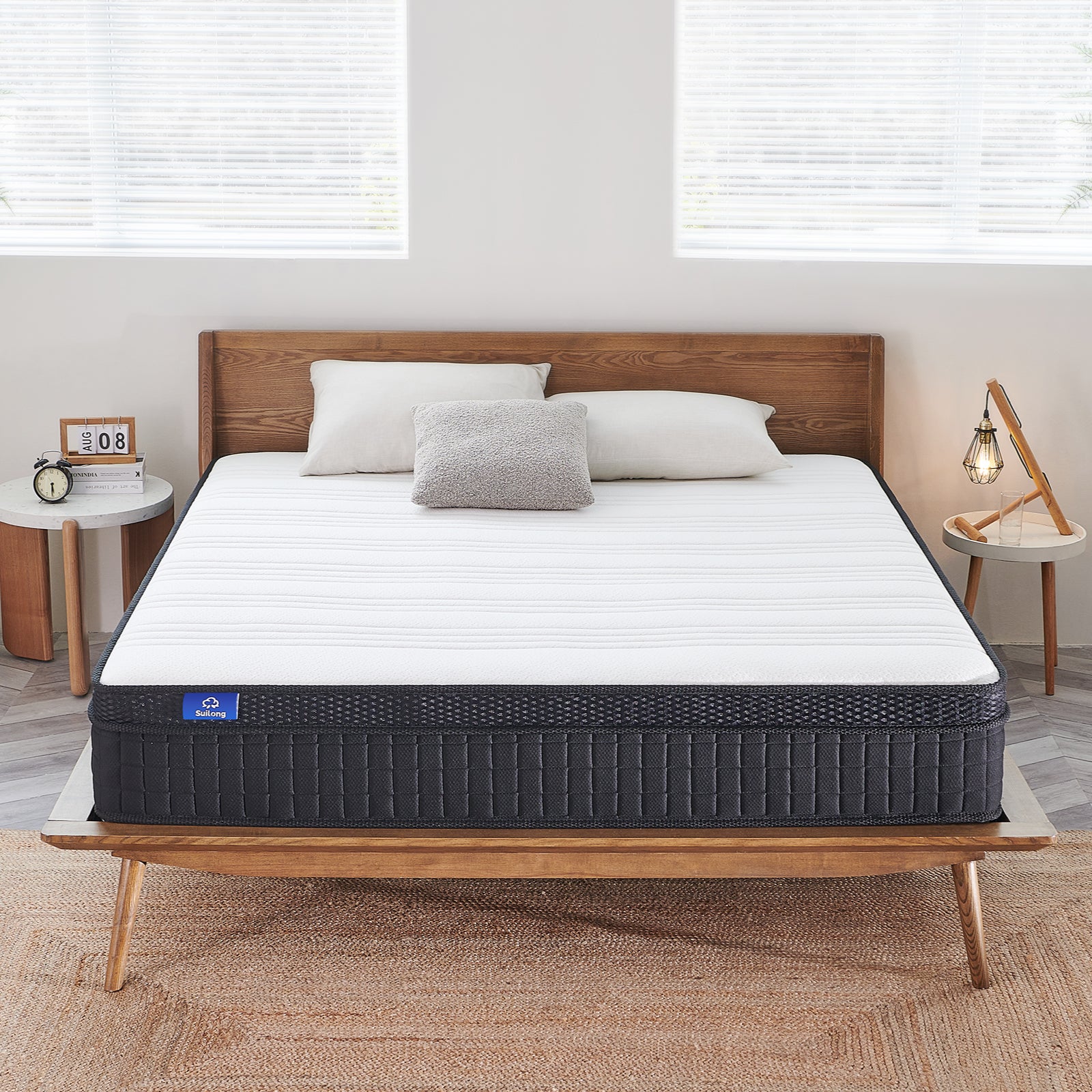Caffeine's Impact on Sleep

Caffeine's Impact on Sleep: Science, Benefits, and Best Practices
In today's fast-paced world, many of us rely on caffeine to kickstart our day and keep us alert. From our morning cup of coffee to that afternoon energy drink, caffeine has become an integral part of our daily routine. But have you ever stopped to wonder how this popular stimulant affects your sleep patterns? Diving deep into the science of caffeine, we'll explore its impact on our nighttime rest and provide insights to ensure you're getting the best sleep possible.
1. Definition and effects of caffeine
Chemical structure and common sources of caffeine
Caffeine is an alkaloid with a structure similar to adenosine and choline. It occurs naturally in over 60 plants, such as coffee beans, tea and cocoa beans.
How it acts as a pick-me-up in the body
Caffeine exerts its refreshing effect primarily by blocking the action of the neurotransmitter adenosine, which in turn increases the concentration of the neurotransmitter dopamine, making you feel more alert and energised.

2. Specific effects of caffeine on the sleep cycle
Affects the time it takes to fall asleep
Caffeine may prolong the time it takes you to fall asleep as it slows down the action of adenosine over a period of 4-6 hours, resulting in a prolonged state of wakefulness.
Changes to deep sleep and REM sleep
Caffeine intake reduces the duration of deep sleep and may lead to shorter REM sleep periods. Prolonged periods of this may impair daytime alertness and concentration.
3. Staying awake: caffeine's utility and limitations
How it promotes wakefulness
In addition to improving alertness, caffeine can help improve the ability to concentrate for long periods of time, which is especially helpful when performing certain tasks.
Caffeine's duration of action and its limitations
Although caffeine can last for 4-6 hours, its effects vary from person to person. For example, some people may experience anxiety or panic attacks.
4. Safe Intake of Caffeine
Recommended Daily Intake
A daily caffeine intake of 400 mg is considered safe for most adults. However, pregnant women and people with certain medical conditions need to limit their intake.
Dangers of Excess and How to Avoid It
Excessive caffeine intake may lead to symptoms such as anxiety, insomnia, and rapid heartbeat. To avoid these symptoms, it is recommended that you control your intake and be careful not to consume large amounts of caffeine at night.

5. Alternatives: Ways to stay awake without caffeine
Natural methods such as a regular routine and a proper diet
Ensuring that you get enough sleep at night, maintaining a healthy diet, and engaging in regular physical activity are all effective ways to stay awake without relying on caffeine.
The Science of Napping
A 20-30 minute nap can help restore energy and concentration. However, the timing and duration of naps need to be moderated, otherwise it may affect your sleep at night.
In today's fast-paced world, many of us rely on caffeine to kickstart our day and keep us alert. From our morning cup of coffee to that afternoon energy drink, caffeine has become an integral part of our daily routine. But have you ever stopped to wonder how this popular stimulant affects your sleep patterns? Diving deep into the science of caffeine, we'll explore its impact on our nighttime rest and provide insights to ensure you're getting the best sleep possible.
Read More:
https://suilong.org/blogs/blogs/do-mattress-toppers-help-with-back-pain
https://suilong.org/blogs/blogs/how-to-decide-the-thickness-of-the-spring-mattress-to-buy
https://suilong.org/blogs/blogs/unlocking-the-role-of-bed-slats-support-and-comfort-explained
https://suilong.org/blogs/blogs/queen-vs-full-mattresses
FAQs
Q: How many hours before sleep should you stop drinking caffeine?
A: It's generally recommended to avoid caffeine for at least 6 hours before bedtime. Some people may require even longer as caffeine's effects can vary based on individual sensitivity.
Q: Why does caffeine make you less sleepy?
A: Caffeine works by blocking the action of a neurotransmitter called adenosine, which is responsible for promoting sleep. By inhibiting its function, caffeine helps increase alertness and reduce the feeling of fatigue.
Q: How can you counteract the effects of caffeine to sleep better?
A: To counteract caffeine's effects, consider drinking plenty of water, taking short relaxation breaks, practicing deep breathing or meditation, and avoiding additional caffeine sources. In severe cases, over-the-counter sleep aids might be considered, but always consult a doctor first.
Q: Can caffeine wake you up from sleep?
A: Yes, caffeine can disrupt your sleep and may cause you to wake up during the night, especially if consumed close to bedtime.
Q: Can caffeine keep you awake all night?
A: Depending on individual sensitivity, the amount of caffeine consumed, and the time of consumption, caffeine can potentially keep someone awake for extended periods, including all night.
Q: How does caffeine affect REM sleep?
A: Caffeine can decrease the amount and quality of REM (Rapid Eye Movement) sleep, the stage of sleep associated with dreaming and deep rest.
Q: Would eliminating caffeine lead to better sleep?
A: For many individuals, reducing or eliminating caffeine can lead to improved sleep quality and duration. However, effects can vary based on individual sensitivity and dependence on caffeine.
Q: Can melatonin help counteract the effects of caffeine?
A: Melatonin is a hormone that regulates sleep. While it can help promote sleep, its effectiveness in counteracting caffeine's effects varies among individuals. It's essential to consult a doctor before combining melatonin with caffeine.
Q: What are the adverse effects of excessive caffeine consumption?
A: Excessive caffeine intake can lead to symptoms like insomnia, jitteriness, increased heart rate, digestive issues, headaches, and dependency.
Q: Who should ideally avoid caffeine?
A: People with certain medical conditions (like heart arrhythmias or anxiety disorders), pregnant women, those sensitive to caffeine, and individuals taking specific medications should avoid or limit their caffeine intake. Always consult with a healthcare professional regarding caffeine consumption.
-
Posted in
Buyer's Guide, Lifestyle, Side Sleepers, Sleep Experts, sleep position, Sleep Tips, sleeping positions
















